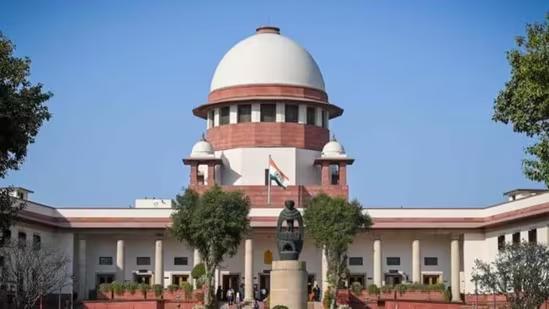
Court can’t grant assent to bills, only Guv & Prez can: Maha to SC
In a significant development, the Maharashtra government has argued in the Supreme Court that courts cannot accord assent to bills and only the Governor and President have the power to do so. This statement was made by Senior Advocate Harish Salve, representing Maharashtra, during the hearing of a presidential reference on whether the court could impose timelines for the Governor and President to deal with bills passed by state Assemblies.
The presidential reference was filed by the Centre seeking the court’s opinion on whether the Governor and President have the discretion to delay the passage of bills or not. The reference was filed in the wake of the Maharashtra government’s decision to send the Shiv Sena-NCP-Congress government’s proposal to dissolve the state Assembly to the President, which was rejected.
During the hearing, Senior Advocate Harish Salve, representing Maharashtra, argued that the court cannot grant assent to bills and that the power to do so lies solely with the Governor and President. He emphasized that the court’s role is limited to declaring the law as valid or invalid, but it cannot exercise the power of the executive to grant or withhold assent to a bill.
Salve also argued that the court cannot impose timelines on the Governor and President to deal with bills, as it would be an encroachment on their powers. He cited the Constitution and various judicial precedents to support his argument, stating that the court’s role is limited to interpreting the law and not to exercising executive powers.
The Maharashtra government’s argument is based on the principle of separation of powers, which is enshrined in the Constitution. According to this principle, the three branches of government – the legislature, the executive, and the judiciary – have distinct and separate powers, and each branch is responsible for its own sphere of activity.
The argument is also supported by the fact that the Constitution specifically grants the power to grant or withhold assent to bills to the Governor and President. Article 111 of the Constitution provides that the President shall give his assent to a bill passed by both Houses of Parliament, while Article 213 provides that the Governor of a state shall give his assent to a bill passed by the state Assembly.
In addition, various judicial precedents have established that the court’s role is limited to interpreting the law and not to exercising executive powers. For example, in the case of Union of India vs. Association of Democratic Reform (2002), the Supreme Court held that the court cannot issue directions to the executive to perform its duties, as it would be an encroachment on the executive’s powers.
The Maharashtra government’s argument has significant implications for the functioning of the government and the relationship between the executive and the judiciary. If the court is granted the power to impose timelines on the Governor and President to deal with bills, it could lead to an encroachment on the executive’s powers and undermine the principle of separation of powers.
On the other hand, if the Governor and President are given the power to delay the passage of bills without any timelines, it could lead to a situation where the executive is not accountable to the legislature and the people. This could lead to a breakdown of the democratic system and an erosion of the principles of accountability and transparency.
In conclusion, the Maharashtra government’s argument that courts cannot grant assent to bills and only the Governor and President have that power is a significant development in the ongoing debate over the role of the court in the legislative process. The argument is based on the principle of separation of powers and is supported by judicial precedents. While the court’s role is limited to interpreting the law and not exercising executive powers, the Governor and President have the power to grant or withhold assent to bills. The outcome of this case will have significant implications for the functioning of the government and the relationship between the executive and the judiciary.






